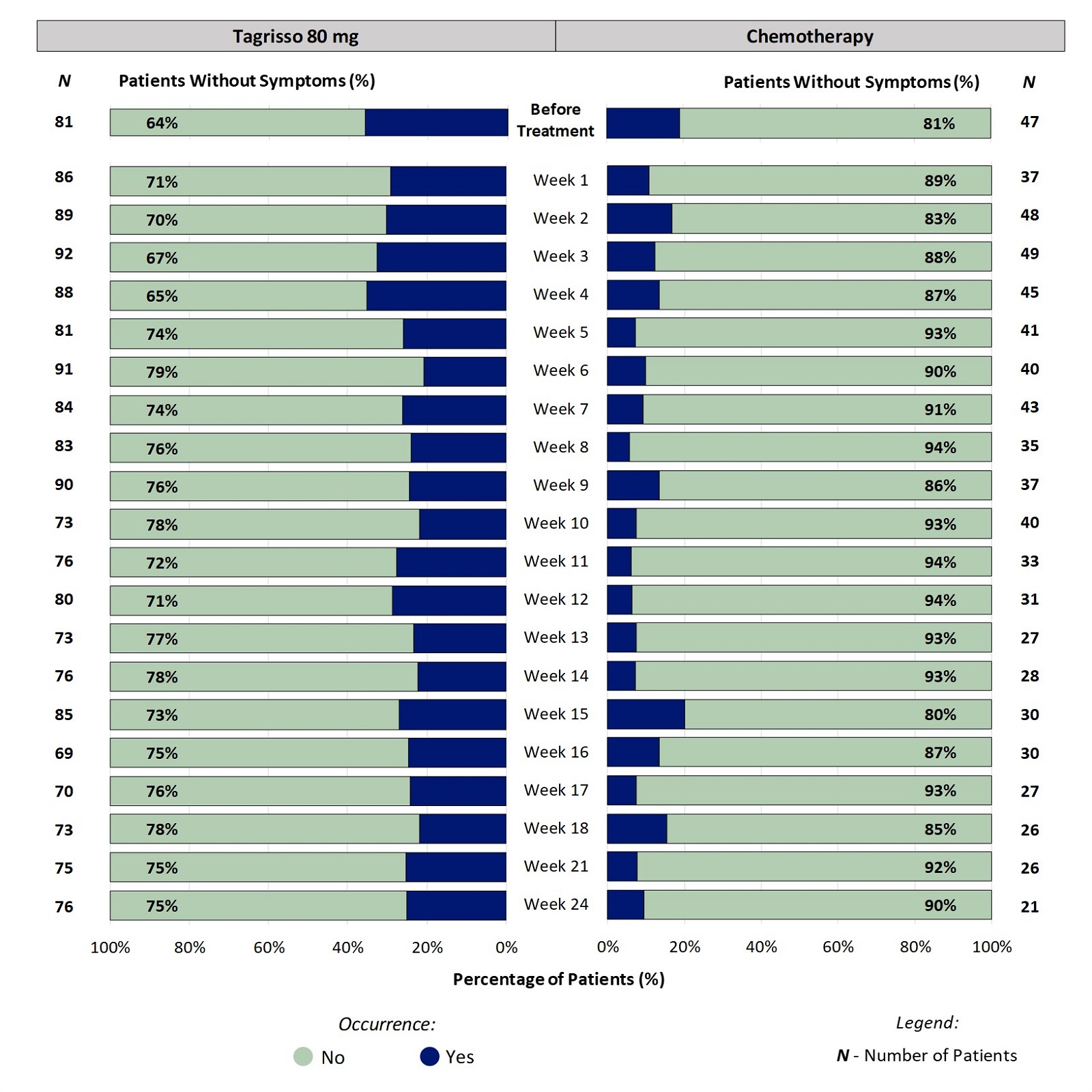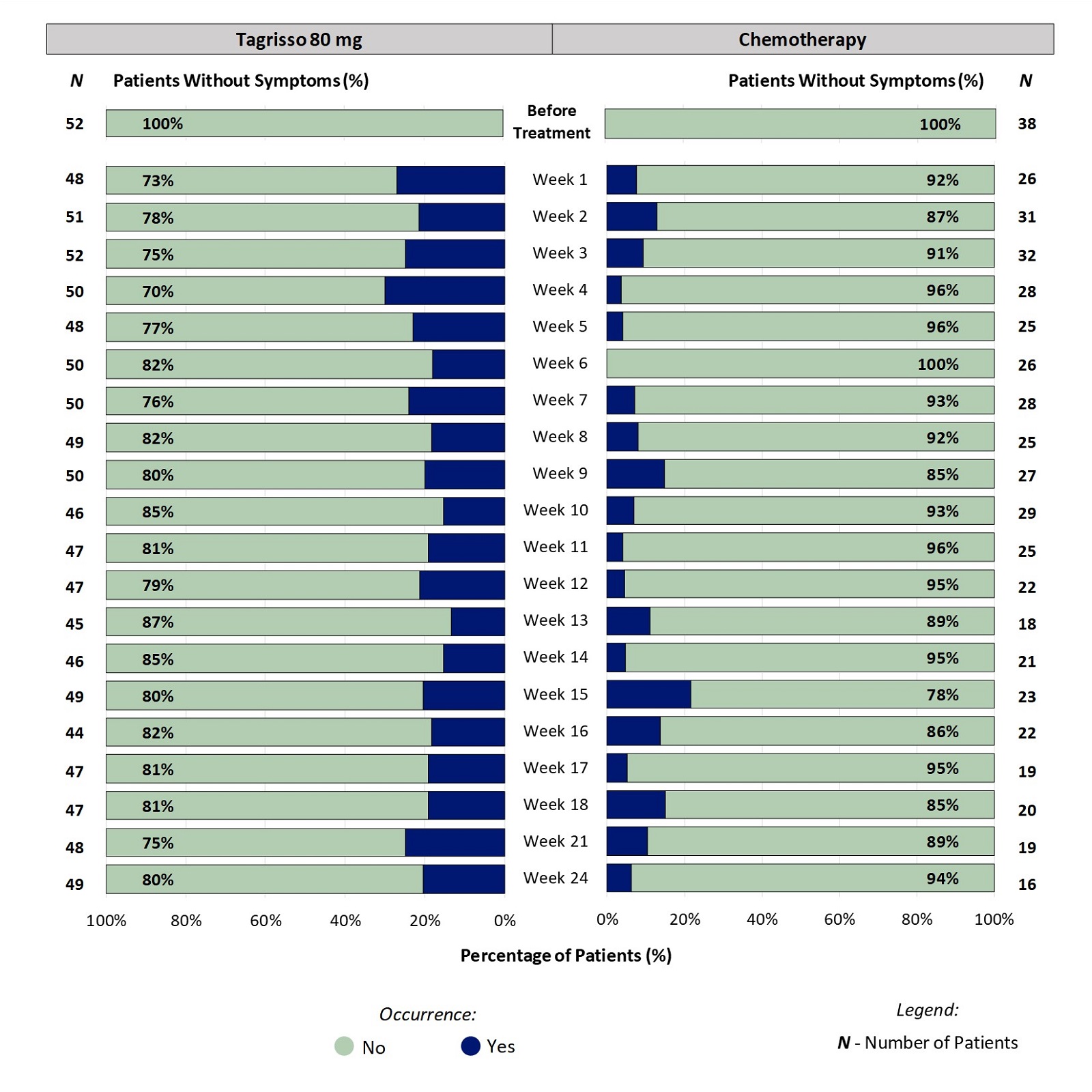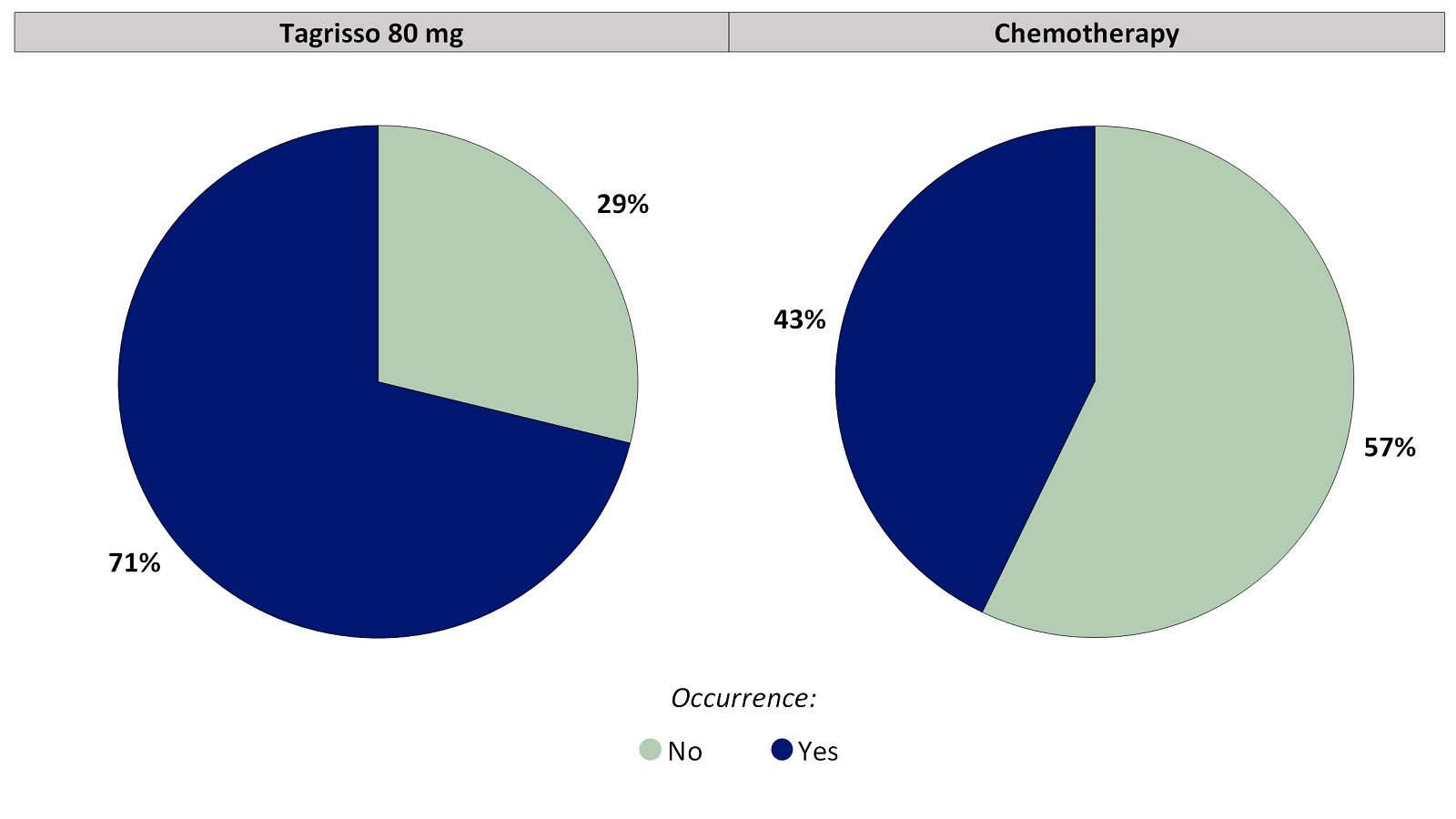AURA3: Rash
Project Patient Voice is intended to be used with a healthcare professional when discussing the potential symptoms related to a cancer and cancer treatment. Do not rely on Project Patient Voice alone to make decisions about medical care. Do not use Project Patient Voice to substitute for advice from your health care professional. Conclusions about patient experiences with symptoms may be limited because not all symptoms may have been captured by the patient-reported questionnaire.
Download symptom data (XLSX, 24KB)
In AURA3 Study, Patients Were Asked: "In the last 7 days, did you have any RASH?"
Patients reported the occurrence of their Rash on a 2-point scale (No, Yes)
Patient-Reported Rash During the First 24 Weeks on Treatment for Patients Who Completed a Questionnaire:
Figure 1 shows the percentage of patients reporting if they had Rash at each time point. For example, at week 2, 30% of patients taking Tagrisso reported Rash. The range of patients who had any Rash during the first 24 weeks of treatment with Tagrisso was between 21% - 35%. Click here for more information on how to read the graphs below.
Figure 1. Patient-Reported Rash During the First 24 Weeks on Treatment
All responses from patients' experiences just before and up to week 24 on-treatment were included in the analysis. Some patients did not report their symptoms every week, therefore the number of patients may vary between weeks. Furthermore, not all patients remained on the treatment for 24 weeks (e.g., some stop treatment for worsening disease) which is a reason for the change in the number of patients over the course of treatment.
Any Rash Occurrence That Patients Reported During the First 24 Weeks on Treatment
Figure 2. Any Patient-Reported Rash During the First 24 Weeks on Treatment
Patients with at least one on-treatment Rash score were included in the analysis. Tagrisso (N=99), Chemotherapy (N=55).
Some Patients Did Not Report Rash Before Treatment:
For patients that did not report Rash before treatment, Figure 3 shows the percentage of patients reporting if they had Rash between weeks 1 and 24.
Figure 3. Patient-Reported Rash During the First 24 Weeks on Treatment: Patients Without Rash Before Treatment
All responses from patients who did not report Rash before treatment were included in the analysis. Some patients did not report their symptoms every week, therefore the number of patients may vary between weeks. Furthermore, not all patients remained on the treatment for 24 weeks (e.g., some stop treatment for worsening disease) which is a reason for the change in the number of patients over the course of treatment.
Any Rash Occurrence That Patients Reported During the First 24 Weeks on Treatment, for Patients Who Did Not Have Rash Before Treatment:
Figure 4. Any Patient-Reported Rash During the First 24 Weeks on Treatment: Patients Without Rash Before Treatment
Patients who had no Rash before treatment and at least one on-treatment Rash score were included in the analysis. Tagrisso (N=52), Chemotherapy (N=35).





